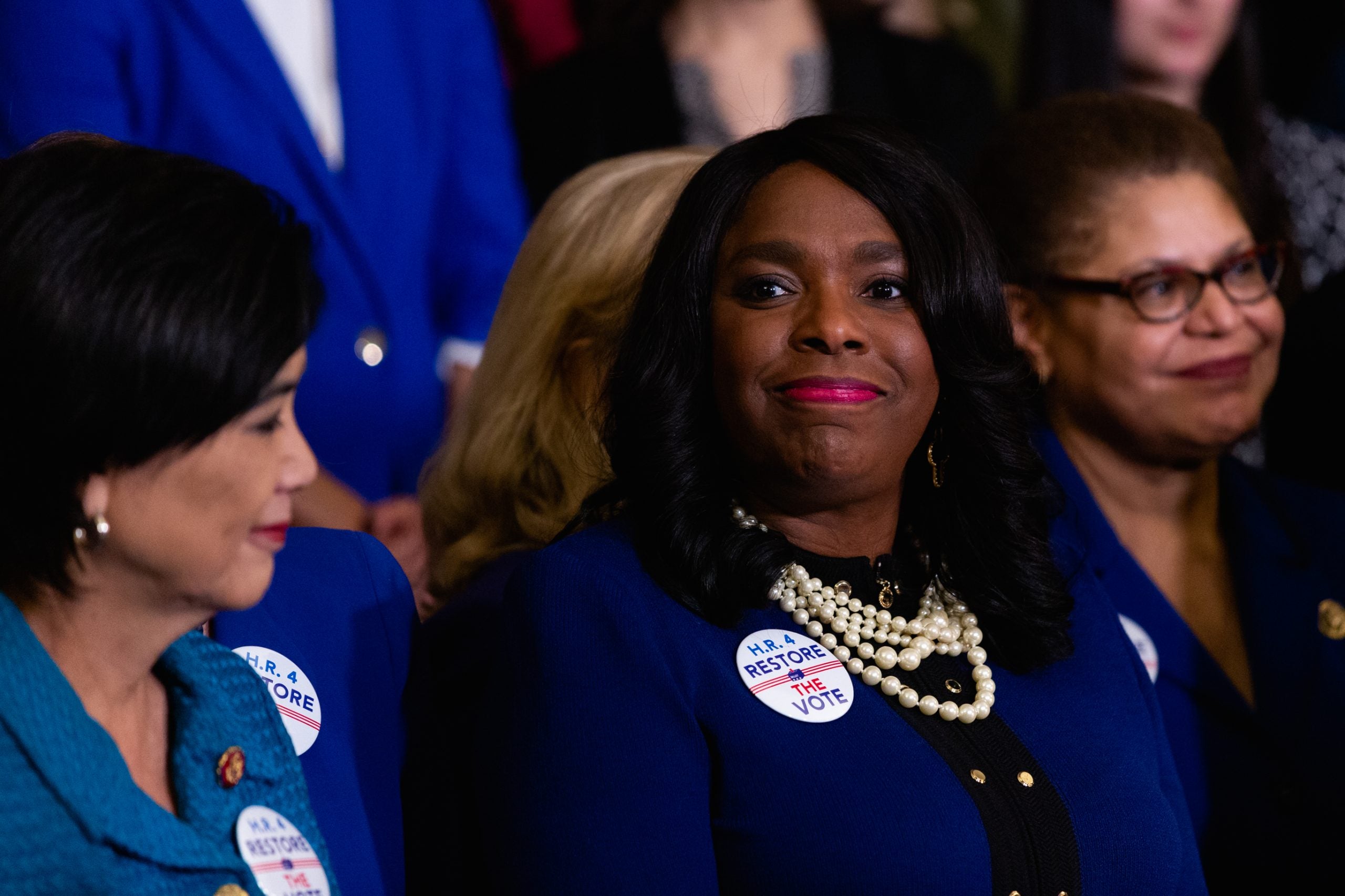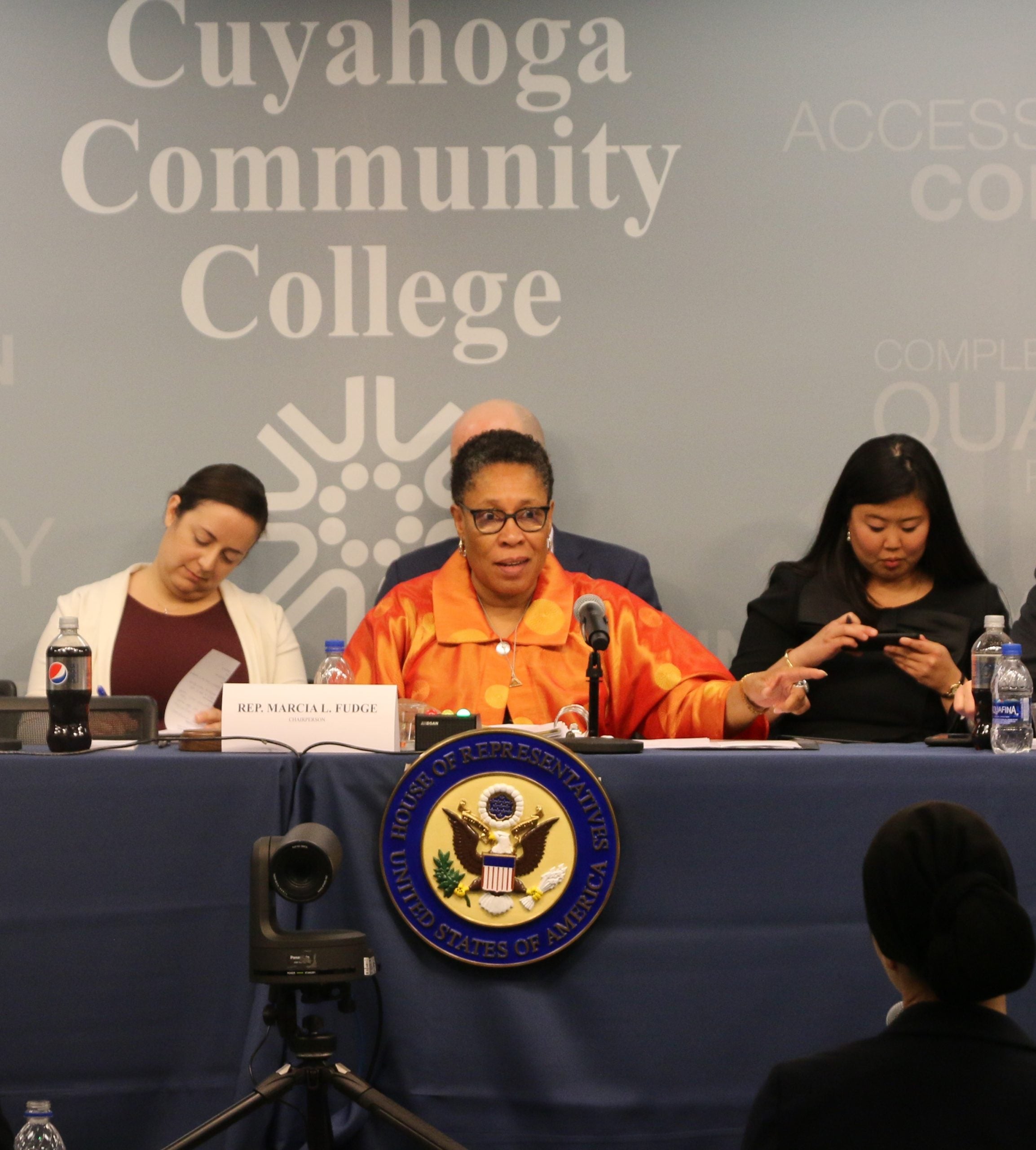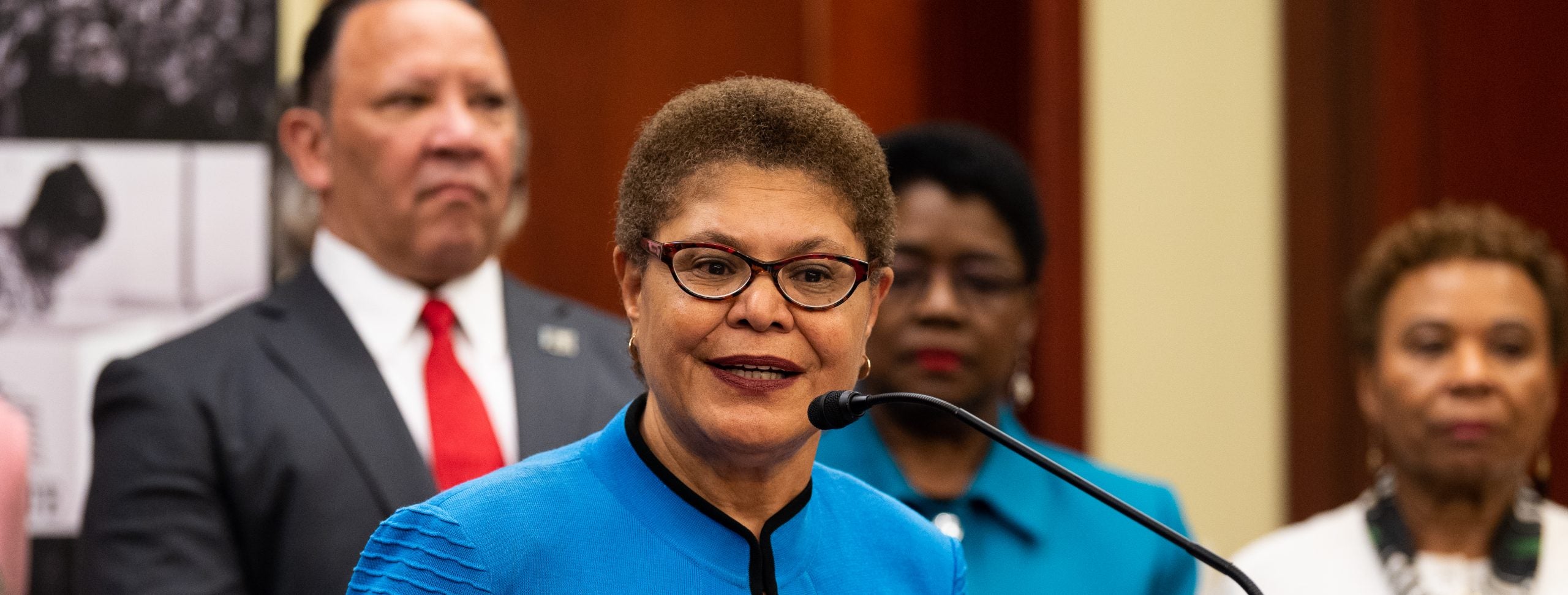Voting rights and the insidious nature of voter suppression has long been in the forefront of the Black voters’ mind. After all, it wasn’t nearly that long ago when Black Americans and their supporters were intimidated, beaten and killed just for attempting to register to let their voices be heard. The continued discrimination at the polls, while different and more subtle in our modern-day society, exists with the same goal as it did back then: to make it more difficult for certain groups of people to vote.
“Old battles have become new again,” Rep. Terri Sewell (D-Ala.), co-chair of the Voting Rights Caucus told ESSENCE. “To think that I would come to Congress in 2010 and have to fight the same old battle that John Lewis fought in 1965 to get the full protections of the Voting Rights Act back was just not something I contemplated.”
And that is exactly the issue. Things drastically changed for many across this country when the Supreme Court gutted that same 1965 Voting Rights Act in the Shelby County v. Holder decision – ruling that states with the longest histories of discriminatory practices in voting need not seek approval of any voting changes from the federal government, aka preclearance. It is no surprise then that the fight to restore the full power of the Voting Rights Act and to change the electoral process for the better has been at the forefront of the Congression Black Caucus’ (CBC) agenda.
“Fighting voter suppression, fighting for voter rights, is one of the central pillars of the Black Caucus’ platform now, and it always has been,” Rep. Karen Bass (D-Calif.), the chair of the CBC told ESSENCE.
“We are supposed to be the shining light of democracy for the world, which is a major contradiction [with]…how we actively prohibit people from voting and only certain people,” Bass added. “There’s not voter suppression of everybody. There’s just voter suppression of some people. And historically, it has been people who are disenfranchised, which are folks of color, students [and the] elderly.”
In more recent years, voters – more often than not voters of color – have had to deal with a string of tactics designed to, if not stop them from voting, making it a frustrating and confusing process.
There are series of Voter ID laws that have popped up ever since the Shelby decision, some of which are so not subtle that judges have tossed them entirely, or at least temporarily blocked them time after time. There are voter roll purges, like the ones in Georgia, where voters lost their civic rights simply because they had not voted in a recent enough election. There are long lines with hours-long waits because of understaffed polling sites. There is the fact that many of our returning citizens who have long paid their dues to society have not had the restoration of their vote. The list goes on and on. And that’s without even starting to dip into the waters of foreign interference in our elections.
“It’s hard to un-ring a bell. Once elections have already taken place under voter suppression, it’s hard to then remove people who are elected because people didn’t wait in line, because people got turned away at the polls because their names weren’t exactly the way they appeared on their driver’s license. Because people didn’t have time to come back, go to a new location because it wasn’t advertised correctly,” Sewell said. “All of these are modern-day barriers to voting and it’s unacceptable, and the Congressional Black Caucus is leading the way in ensuring that every American has a right to vote.”

“We should be in the business of making it easier for people to vote, not making it harder,” she added.
Sewell introduced H.R.4, the Voting Rights Advancement Act of 2019 in February of last year to restore the full protections of the Voting Rights Act, with new criteria for the states who must obtain preclearance before changing their voting practices.
“The most important thing we can do is to put pre-clearance and the requirement of pre-clearance for states that have had a history of voter discrimination, a modern-day history of voter discrimination [back in place],” Sewell explained. “That’s what the Supreme Court asked Congress to do, and so instead of looking back to the 1940s and ’50s and ’60s, what my bill would do is it has a 25-year lookback, so from the 1990s going forward.”
With a Democratic majority in the House, that bill easily passed the lower chamber in December of last year. However, it is sitting in the hands of the Republican-controlled Senate, with no sign of movement after being read twice and then referred to the Judiciary Committee.
However, with the coronavirus pandemic making its way through the United States, weaknesses in our electoral process have been further highlighted, including the lack of access that plagues poorer communities and communities of color.
Congress has taken steps to help states prepare for the new reality of elections amidst COVID-19 by passing the Coronavirus Aid, Relief and Economic Security (CARES) Act, which provides some $400 million in emergency funding for this purpose.
But that just scratches the surface, and Chair of the House Administration Subcommittee on Elections Marcia Fudge (D-Ohio) still says there is much more work to be done, looking to push for the American Coronavirus/COVID–19 Election Safety and Security Act (ACCESS) Act (which was introduced on March 23 as part of the House version of the 3rd COVID-19 bill – H.R. 6379) to make sure that there are provisions to make the electoral process easier, and to ensure that people are comfortable with the way that they vote, not just in an emergency but all the time. This would include making provisions to extend early voting as much as possible, extend vote by mail (something which Republicans, including the president, has been trying to quash) and other measures.
Fudge hopes that this could be a wakeup call for states that do not allow early voting or only permit absentee ballots in certain circumstances.
“I think [the pandemic] has made [states] realize that the only ways that we’re going to now be able to ensure that every single person has the right to vote is by… expanding early voting hours, by increasing vote by mail,” Fudge pointed out. “There should be some emergency vote by mail probably as a result of this, making sure that everyone has a ballot, so every state should ensure that every single registered voter receives a ballot so that they can send it back in a postage prepaid envelope. That’s the only way that we make this work.”

“If Ohio had been, let’s say, Oregon, where they all vote by mail, we never would have had to cancel the very last day of voting,” Fudge added. “Other states would not have had to push theirs back. So, I think we do have to look at how we vote in this nation and how we make it more accessible for everyone.”
Sewell also pointed out that vote-by-mail resolves the issues some may have in accessing the polls because of their unique circumstances.
“It is so critical that states institute vote by mail for the November elections. Vote by mail is fundamentally democratic, ensuring that people who may have issues accessing the polls due to work, childcare, health, transportation or other restrictions are still able to exercise their right to vote,” she said. “Vote by mail is especially important during a time where Americans could be deterred from the polls for health reasons; but it is a good practice and one that will serve us well, even after this crisis has passed.”
In the meantime, the Caucus and its legislators want Black America to remember the power of their vote, even as they work to make sure that voter suppression is, for once and for all, an ugly piece of the past.
“Voting is a right given to every single citizen of this nation. [The Constitution] doesn’t say, ‘If you’re poor.’ It doesn’t say, ‘If you haven’t voted in the last two elections.’ It says you have a right. Voting is not something that you can decide because you didn’t use it, you lose it. The Constitution does not say that,” Fudge said. “The Constitution says we have a right to an unabridged right to vote.”
